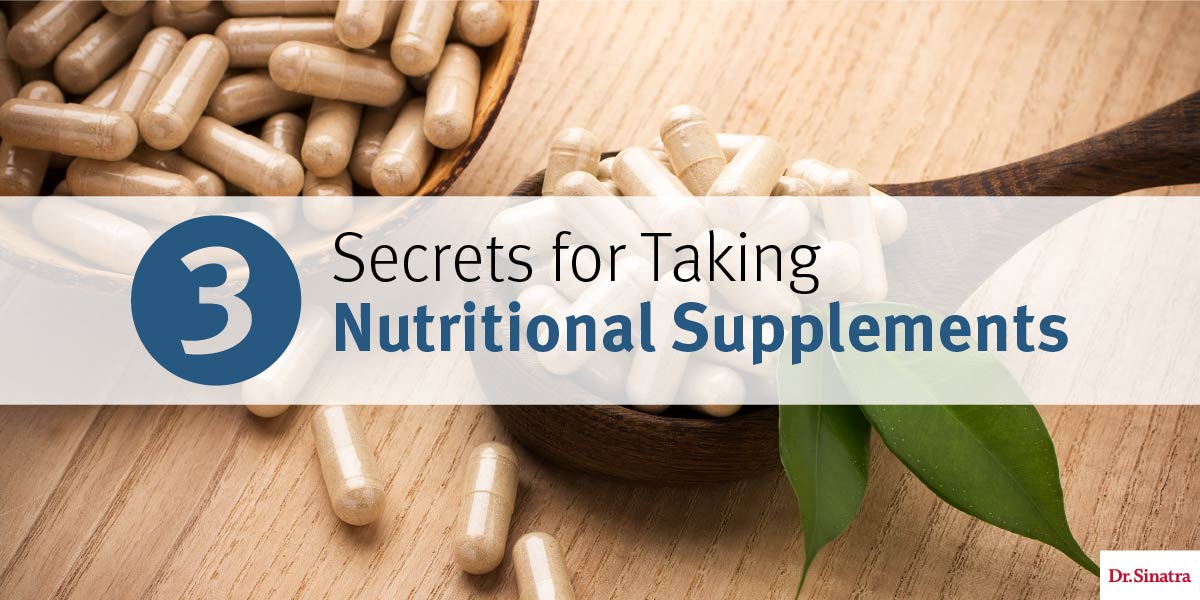
I often get questions about the best way to take nutritional supplements. The following a few guidelines will make taking your vitamins and other supplements easier and more effective.
When Is the Best Time to Take Your Vitamins?
The simple answer to this question is in the morning and/or afternoon. Depending on the number of vitamins and supplements you take, you may want to split them up, taking half of them in the morning and the other half in the afternoon.
Some people may do just fine taking their nutritional supplements at night. But I always encourage my patients to know as much as possible about how specific vitamins and nutraceuticals function in the body because that will help them know when best to take them. For example, certain supplements such as SAMe, CoQ10, and L-carnitine may have a tendency to keep some of you awake at night. So if you know that about yourself, take your nutritional supplements in the morning or afternoon.
Should You Take Supplements With or Without Food?
Since foods are a major source of nutrients, it makes sense to add nutritional supplements to your meals so that they can be digested and absorbed along with the elemental nutrients found in the foods you eat.
One exception is carnitines, which I recommend taking alone and on an empty stomach. But be very careful about drinking grapefruit juice with your vitamins and especially your prescription drugs. It contains an enzyme that can literally multiply your normal doses without you realizing it.
Can You Take CoQ10 with Statin Medications?
Not only can you take CoQ10 with cholesterol-lowering statin medications, I strongly recommend that you take it. Statins can deplete your body of CoQ10, so I recommend that you take at least 200 mg of a highly-absorbable CoQ10 with your statins.


